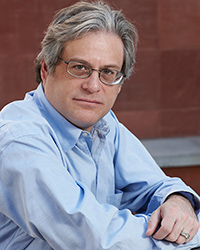Peter Brandon Bayer

What's the most important thing you are working on right now?
I am completing editing Deontogical Originalism: Moral Truth, Liberty, and Constitutional “Due Process,” my meta–theory of American constitutional due process jurisprudence. This rather lengthy text attempts a meta-theoretical approach: (1) embracing originalism as the proper framework for constitutional meaning; (2) proving that the actual original intent of both the 1787-1791 Framers and the Reconstruction Congress was to elevate as America's supreme law, the natural law principles espoused in the Declaration of Independence; (3) further proving that the Declaration's natural law theory sounds in deontological morality, meaning that morality is a priori, transcendent, applicable to all persons in all societies, and arises not from human imagining but rather from unbiased reason; (4) arguing that the best available deontological precepts were espoused by Enlightenment philosopher Immanuel Kant; and, (5) tracing the development of modern substantive due process precedents that, in large part have accepted, albeit without attribution, Kant's moral philosophy. This beast of an article will be published in two parts by the Thurgood Marshall Law Review. (I have considered but rejected entitling the second part: Deontological Originalism -- Revenge of the Framers, or Deontological Originalism -- The Deontologists Strike Back.)
Thereafter, I will be ready to complete research and write on a seemingly unrelated yet compatible idea, specifically, the actual and true personhood of humanly created entities such as corporations and government.
What is the most significant issue facing your field and how should it be addressed?
Building on the response to the first question, right now, rather amazingly and incongruously, the Supreme Court employs not one but two distinct and incompatible frameworks to address substantive due process cases. The first and, I firmly believe, wrong standard defines "due process" empirically as prevailing American traditions. For example, the Court uses the "deeply-rooted traditions" approach in Second Amendment cases. The second and correct paradigm, used most recently and prominently in the "homosexual rights cases," strikes as violating due process, governmental actions that offend innate "human dignity." Not surprisingly, the dignity standard borrows heavily from Immanuel Kant's moral theory. (While I can understand the political pragmatics, the Lawyering Process teacher in me bristles that the Court declines to acknowledge Kant with as little as just one cursory footnote.) Which due process paradigm applies in any given case apparently depends, for the time being, on the whim of Justice Kennedy.
The "significant issue" in constitutional law practice is convincing the judiciary that human dignity is the sole and proper currency of the natural rights protection we call "due process of law." The "significant issue" in scholarship is convincing all those unapologetic postmodernist, consequentialist, living-constitutionalists that modernity, not postmodernity is correct.
What is it about being a law school professor that inspires or motivates you?
Actually, (and I hope this isn't cheating) it is the whole that derives from the combined opportunities: (1) to pursue the scholarship topics that are most important to me; (2) to teach, to influence, and to be influenced by new generations of students; and, (3) to be part of not only an outstanding, collegial law school, but as well, part of a developing, exciting university. I am able to write and think what I please, to help produce the new professionals who will govern and guide our society, and to help foster a university and a law school both earnestly seeking to achieve the best goals of "the academy."